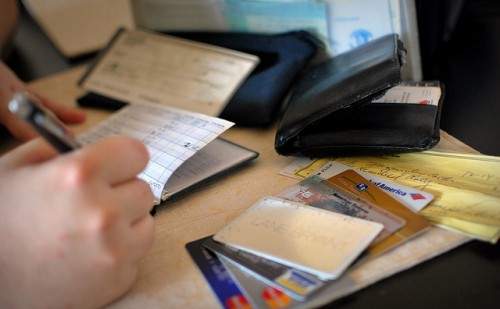Getting Out of Debt: The Biggest Mistakes People Make and How to Avoid Them
Posted by : Premraj | Posted on : Tuesday, January 17, 2017

It’s easy to be confused by financial issues, especially when debts start to compound. To save yourself from making huge mistakes that end up costing you later it’s essential to be informed. Understanding your circumstance is the best way of controlling it. Below is some information about debt along with a list of common mistakes and how to avoid them.
Good vs. bad debt
To avoid getting in a bad debt situation and to deal with one when it arises you first have to know when debt is good and when it’s bad. Debt is good when it is small and managed, e.g. when you pay off your credit card balance at the end of each month.
Another good debt is an investment in a reliable asset, like a mortgage, which you can be confident will increase in value over the years. Even good debt must be entered into within your means, however, and the key indicator for knowing what your means are is your debt to income ratio. Add up all your monthly debt payments and divide the total by your gross (i.e. before tax) income and use the resulting percentage as a rough indicator of how much debt you can really afford. 50:50 or higher ratios are to be avoided unless you have a very confident and reasonable expectation of a pay raise or coming into new money soon.
Debt is bad when it becomes so large you fail to pay it on time and it affects your credit rating, disrupting your ability to get credit at a reasonable interest rate.
#1: Ignoring and neglecting
The worst mistake you can make is to ignore or neglect your payments, especially if doing so leads you to forget about them until it’s too late! The first thing to do is to examine your current expenditures and make commitments to limit spending on unnecessary things.
Secondly, pay off debts which provide you with the necessities of life (e.g. utilities) first, then focus your attention on any debts where you collateralized an important asset (like your mortgage) and return to personal loans and lines of credit last because they can be negotiated.
While prioritization is essential, you must also keep each creditor in the loop, regularly letting them know that you’re planning to pay soon, but shy away from mentioning the date if they’re a lower priority. Always return calls from creditors and develop a plan to deal with debts. If you ignore your debts you’ll merely accrue more and run the risk of being sued, evicted or having your assets repossessed.
#2: Lying to yourself
It is impossible to manage debt without a budget. You can’t lie to yourself. The only way to ensure limited money pays top priority debts and covers living expenses is to write a good budget. Another common mistake is refusing to stop using your credit cards: don’t rack up more debt. Don’t decide on the basis of the most aggressive creditors because there’s no necessary correlation between their hounding and the actual urgency for you to pay the bill. Some creditors are just more organized, or more vicious, than others.
Don’t be pressured into agreeing to pay more than you really believe you can afford, make decisions on the basis of a household budget and not what creditors want to hear. Don’t use your home as collateral to get a loan to pay off debt: you could lose your most valuable asset.
#3: Reaching out to the wrong people
Resist reaching out to the wrong people. Never borrow money illegally, as this only makes a bad situation much, much worse. If you have a spouse, make sure to involve them in the budgeting process so as to most effectively save but if you can’t get a loan, think carefully about asking a friend or family member to consign.
If you fall behind in your repayments, they’ll go after the co-signer listed on the agreement, which could greatly damage or ruin your relationship. If you decide to consult a credit counseling agency or a finance company, make sure you understand the service that they’re offering. Unsecured borrowing is a safer bet provided you plan ahead of time how such a service fits into your budget.
Secured borrowing is generally to be avoided because, again, you don’t want to risk tying up more of your assets if you’re already facing significant financial challenges.
Finally, remember to plan – as well as you can – for unexpected expenses and incorporate them into your budget. Car repairs or medical bills should be forecast as much as possible, and possible raises in any income source should go directly and entirely into repayment. The solution to your problem begins with a pen and paper.
Zak O’Donnell works at a charity offering support and practical advice for those facing money problems however large or small. His informative articles appear online to help people feel less isolated and embarrassed.
 SU
SU REDDIT
REDDIT







